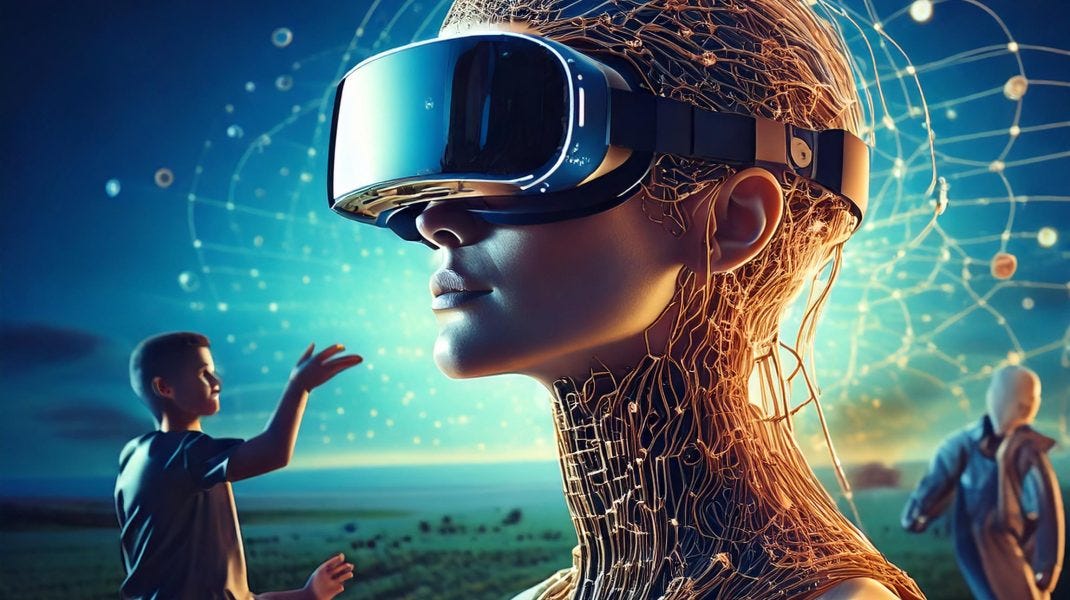This is Culture & Code, a newsletter and podcast about Creativity and Artificial Intelligence. Culture & Code explores innovation across storytelling, technology and audiences to help creative professionals collaborate better with AI and each other.
Software Ate the World. Will AI Eat Software?
The mega-VC Mark Andreeson wrote a provocative essay in August 2011 called, “Why Software is Eating the World”. The basic gist was Silicon Valley software companies riding on broadband Internet were poised to disrupt and take over large swathes of the economy. He predicted over the following decade (to 2021), many traditional industries, including those with physical value chains, were likely to be disrupted and remixed by tech companies.
As much as I personally disagree with Andreeson’s philosophy and writing, I must tip my hat to him for absolutely crushing this prediction. So much of today’s product, service and experience economy is mediated by Internet based software to a greater or lesser degree. It’s virtually impossible to find a national or global brand that isn’t defined largely by how well or how badly it manages its software and customer experience.
Since the 2010s, software has become more than just technology. Software has become a medium unto itself. There is an identifiable software derived method and mentality that people use to develop ideas, create products, raise money, start companies, and serve customers. Andreeson was absolutely correct to say software is eating the world.
Enter Artificial Intelligence.
At first blush, it would seem that Silicon Vally tech companies are in pole position to dominate how AI develops. If you benchmark early Internet technology and services against today’s consumer and business grade AI, that’s not a bad bet. Now jump into your time machine and look at the likely Internet winners 1995-2005. They were the incumbent telecommunication companies and media companies. The telcos, cable cos, and network tech companies like Cisco had the critical knowledge and resources to develop broadband Internet, and scale it for the masses. The media companies had huge libraries of content to fill those networks. It was a match made in M&A heaven.
And we know how that worked out…
Marshall McLuhan noted that the first meal of any new medium is the old medium it displaces. Television ate radio revenues before it generated unique TV revenue. Internet v1 not only digitized physical newspapers and magazines, it also digitized the economics of publishing, which put a lot of legacy dollars in play for young and hungry Internet start ups. It wasn’t until Google introduced key word buys for search that you could argue the Internet offered a unique value proposition that could ONLY exist on the Internet.
So if a new medium changes the reach, richness and interaction of information exchanged between people, what are the 2024 legacy businesses most at risk as AI’s first meal? I argue the legacy businesses that need to look over their shoulders the most are enterprise software companies.
BECAUSE THAT’S WHERE THE MONEY IS…
Software companies bled media & entertainment white. Buying a legacy Hollywood studio today is like buying a European castle. They’re beautiful, historic, unique and an absolute money pit to maintain. As a plucky AI entrepreneur, you might go after financial services or energy for that big first meal. Both industries have proved tough nuts to crack for asset-lite disruptors. Healthcare? Government? Good Lord, let’s move on.
Go down the list of possible legacy industries with a big installed base, predictable revenues, “professional management” (as in, the original innovators are long gone), low regulatory overhead, low inventories or physical assets, plus a pile of retained earnings. The list gets pretty sparse except for enterprise software companies.
AI scraped Internet content to train the first generation of Large Language Models. It has started scraping software for its next meal. Therein lies the irony. The Silicon Valley software model ate the world in the 2010s. This decade will show whether that primed the software industry for its next meal or fattened it for “harvest” as the meat industry likes to say.
Interview with Rylan Pozniak Daniels, VR/AR Developer
Ever read those stories about “talent wars” surrounding AI and/or emerging tech? Well, Rylan Pozniak Daniels is a living, breathing example. Still in his early 20s, Rylan has worked with NASA, Apple, Stanford University, Snapchat, Google, and Niantic on XR development and is on a mission to democratize XR to the masses. Rylan is also a prolific music composer, having been named as a Los Angeles Philharmonic Composer Fellow. His original pieces were premiered by the LA Phil Orchestra and the LA Master Chorale at Walt Disney Concert Hall.
Rylan and I met at the Cerebral Beach AI Hackathon in Santa Monica, CA during October 2024. We were part of a hacking team of 5 people who developed a 2min Generative AI trailer for a fictional horror movie. We had 24hrs from start to finish, a clutch of the bleeding edge AI tools, and a lot of Red Bull.
This interview is a follow-up from that hackathon that also drills into more of his own work in VR/AR/XR, which refers to as the ultimate end user “experience” even as Generative AI becomes preferred medium for storytelling to target such an experience. Enjoy!
Merging Worlds: How AI is Transforming Virtual Reality
https://cultureandcode.io/rpd-interview/
Coming Soon to the Culture & Code Podcast & Newsletter
1.) An interview with the Film Commission of Arizona about the impact of AI
2.) Our next installment of Storytellers are Developers, which explores the care and feeding of LLMs and how that impacts creative IP.









